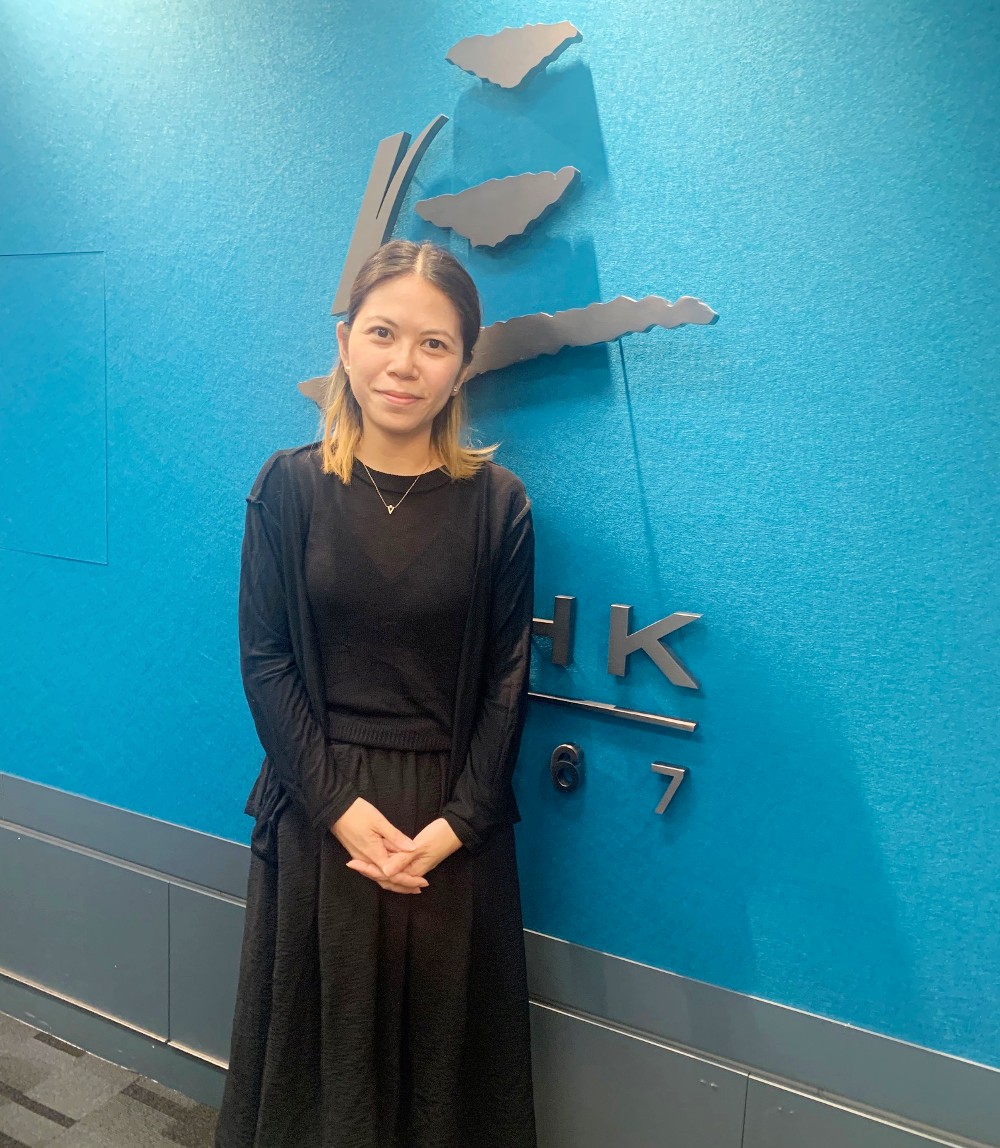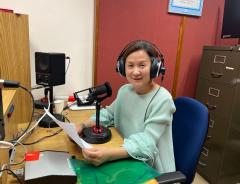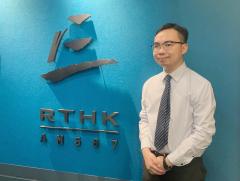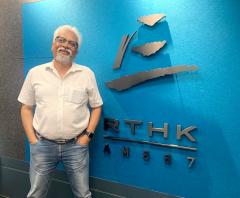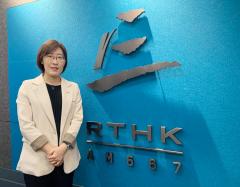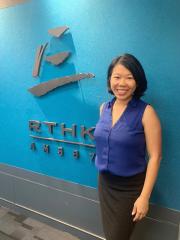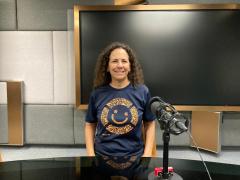簡介
Listen to #Hashtag Hong Kong every Sunday morning at 8.15
Focussing on issues affecting civil society, we'll hear from representatives of NGOs, associations, statutory bodies, and non-profit groups.
(Sundays 8.15am - 8.25am)
最新
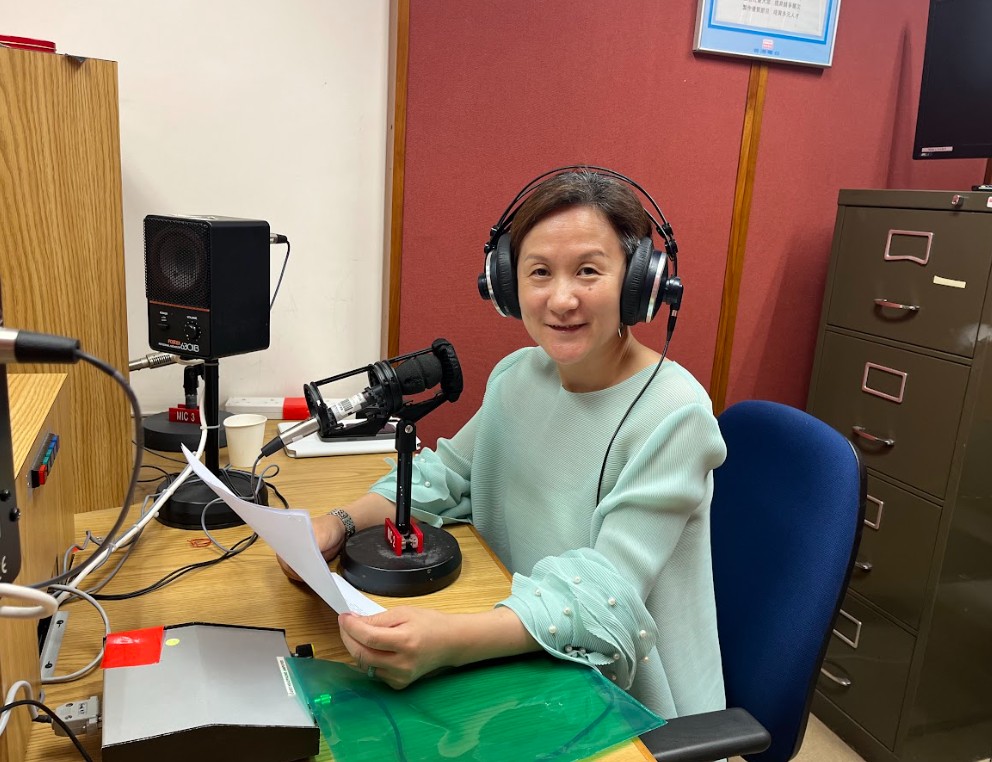
Vivian Lou, Director, Senior Citizen Home Safety Association
Good morning, everyone. I'm Vivian, Director of the Senior Citizen Home Safety Association and Professor in the Department of Social Work and Social Administration at The University of Hong Kong. Today, I’m going to share a little bit about a critical challenge facing Hong Kong's rapidly ageing population - the depression among older adults.
As you may be aware, Hong Kong is becoming an ageing society. More than 20% of our population is now 65 years old or above, and this percentage is expected to keep growing in the coming years. This demographic shift is creating significant challenges for our community, especially for our public health. One of the major issues is the high rate of depression among our senior citizens. Studies show that around 11% of Hong Kong's older adults suffer from at least one common mental health problem, and depression is a big part of that.
Why is this happening? The high rates of depression among older adults can be attributed to several key risk factors. Older adults often face multiple health challenges, ranging from chronic illnesses to physical limitations, which can significantly impact their mental well-being. Additionally, financial concerns, such as poverty and low income, can create significant stress and anxiety. Social isolation is another major contributor. Furthermore, the cognitive and functional declines associated with ageing can exacerbate feelings of helplessness and diminish an individual's ability to cope effectively. Even social culture could also be a factor that worsens the situation by discouraging older adults from seeking help. These factors can significantly impact an older adult’s overall well-being and quality of life.
Depression in older adults often presents differently than in younger populations. They may have common symptoms such as persistent sadness, anxiety, and difficulty concentrating. However, older adults are more likely to display cognitive changes and physical symptoms such as chronic pain or digestive problems, rather than the emotional symptoms we often associate with depression. This can make depression harder to diagnose and treat.
The good news is that there are effective ways to address depression in older adults. In addition to medication, community-based interventions and traditional practices like Qigong are often found to be effective approaches to treat depression in older adults. In Hong Kong, various local organisations are providing community-based mental health support to older adults. Let's take the Senior Citizen Home Safety Association's comprehensive 24/7 support service “Care-on-Call” as an example. This service has a team of registered social workers to take care of users’ emotions and mental well-being. We offer crisis assessment, emotional support, counselling, and information on community mental health resources. Through early screening and intervention, this service aims to prevent or alleviate the onset of major depression among older adults.
However, there's still a lot more that needs to be done. Given the rapid ageing of Hong Kong's population, the government may need to increase the availability of free or low-cost mental health services for older adults, so that more of those in need can access professional support. More resources for training social workers and healthcare professionals are also essential to better identify and manage mental health issues. Furthermore, the government should strengthen its collaboration with community organisations to focus on the mental well-being of our seniors. For example, they could encourage community centres and other groups to regularly host mental health talks and support groups, where older adults can come together, share, and find comfort in one another.
Ultimately, helping with depression in Hong Kong's ageing population is going to take a lot of different efforts. We need to make mental health less "shameful", empower communities, and ensure our seniors have the resources and care they need. It's a big challenge, but an important one we have to keep working on.
And to end on a positive note, I’d like to dedicate this song to all of you as I am a strong believer in the power of love. With love, we can! It’s called Ping Zhuo Ai by Julie Sue.
預告
Jamie Lau, Project Manager of Natural Parenting Network
Recently, the Equal Opportunities Commission released a report on breastfeeding at publicly accessible premises in Hong Kong. We from the Natural Parenting Network would like to share the challenges that breastfeeding mothers face and hope the public will better understand our needs and offer support and respect.
Breastfeeding not only benefits babies and mothers, but also families, and the workplace, as well as the society ultimately.
The success and sustainability of breastfeeding depend not only on the effort of mothers and babies but also how the support from their environment: the attitude of family members, societal views, the workplace arrangements when mothers return to work etc.
Breastfed babies receive natural antibiotics and other life-immune contents, especially during their vulnerable period before the age of 2. This reduces the risk of babies getting sick or hospital admissions, which subsequently decreases the need for parents to apply for leave to take care of their children. Parents then can focus more on their work and have high productivity, which is a win-win situation for the new families, organization and society.
Apart from physical benefits, breastfeeding also helps mothers and babies establish a close bond and attachment, leading to better emotional and brain development. Therefore there is an essential need for social support for breastfeeding families.
We realized that mothers are facing some difficulties:-
1 . Although many public venues provide baby care or nursing rooms nowadays, the number of facilities provided is far less to meet the demand. There may be 1 or 2 nursing rooms if lucky or it maybe only available on certain floors). But the number of families visiting the venue is not 1 or 2! We can imagine when a baby shows their early hunger signal, mothers need to find their way to the baby care facilities, which may take a 10-minute walk, only to find the room may be occupied, leading to a further waiting of 30 minutes or more.
2. Some nursing areas are designed to share with baby-changing stations. This would lead to a longer waiting time and queue for those who have real needs.
3. Sometimes misutilization occurs such as people occupying the nursing room for bottle/ formula feeding babies, having lunch, or other uses rather than breastfeeding! Some facilities management offices may lock the room for better control and avoid the above occurrence. When mothers reach the nursing room, they need to call the management office and wait for them to unlock the room. It is very inconvenient indeed and the purpose of establishing a breastfeeding room cannot be fully utilized.
The availability of breastfeeding facilities is only one of the difficulties that mothers face. There is also a lack of awareness and acceptance of breastfeeding. People think it’s just the same between breastfeeding and formula feeding and even may stop mothers from breastfeeding in open areas such as shopping arcades, restaurants, and parks etc. They even ask mothers to feed their babies in the washroom, which is inhumane. This can deter mothers from bringing their babies out even for a walk.
On the other hand, there are only guidelines issued by the government but not ordinances to monitor employers to provide certain designated breastfeeding periods and spaces. Therefore apart from families visiting public venues having their needs for breastfeeding facilities, some working mothers need to pump or express breastmilk at nursing rooms near their workplace, which increases the need for certain amount of breastfeeding rooms.
There is an increasing need for breastfeeding facilities in public and government premises. Government legislation on breastfeeding facilities requirements in newly built and refurbished premises can absolutely help to fulfil the demands. Relative stakeholders shall put an effort into supporting breastfeeding families. The developers can arrange breastfeeding facilities by re-arranging shops/ office areas in their existing premises, placing portable cube breastfeeding rooms can already help a lot. We think it is a social responsibility to offer support and respect to breastfeeding mothers.
The above-mentioned hindered mothers' continuous breastfeeding, especially after getting back to work. The attitude of the people around them is very important. How the public reacts to breastfeeding strongly affects mothers’ confidence and minds in sustaining their breastfeeding journey. We would recommend the government to promote and educate people that “breastfeeding is just that normal”, breastfeeding mothers are deserved to be respected and accepted. Mothers have the right to breastfeed their children anytime anywhere, even the breastfeeding facilities are not available, without being stared by strange eyes.
There are resources in the society that support breastfeeding mums. We are breastfeeding mothers and we provide peer support to expected and post-natal parents, the “Breastfeeding Peer Counseling Program” (in short “BFPC) is commissioned by the Department of Health. We organize workshops and deliver correct breastfeeding information via social media like Facebook, Instagram, WeChat, and YouTube. Mothers can also raise their enquiries by reaching out our hotline and WhatsApp group services.
Moreover, we recommend mothers download the mobile app “ Breastfeeding GPS” so that they can obtain the location of breastfeeding facilities nearby when they are going out with their babies or there is a need for a place for milk expression during work or away from their babies.
This morning, I’d like to dedicate the song Never Grow Up by Taylor Swift to all of you listening. Enjoy and Thank you
重溫
Maggie Lee, Executive Director of Hong Kong Alzheimer's Disease Association
“File does not exist” …….
“This file is corrupted and cannot be opened” …….
These may be common problems in our daily computer use.
Then how about the brains of people with dementia? Memory and the files in their brain are always broken and difficult to recall.
Dementia is a degenerative disease of the brain. The deterioration usually starts very slowly, being forgetful at first. Eventually, it can develop into obvious memory loss, inability to self-care, being lost, not recognising loved ones and forgetting important moments in life.
“Who are you?”, “Where am I?” are heartbreaking questions but repeated by people with dementia at every moment. Please remember, Dementia is not normal ageing, but a disease that causes memories to fade from the recent to distant past.
In Hong Kong, about 10% of people over the age of 65 live with dementia, and over the age of 85 is as high as one-third. We all know that Hong Kong is facing an ageing population and the prevalence of dementia will sharply increase. There are currently about hundred and fifty thousand people living with dementia in Hong Kong. The number will double in the next 15 years. However, is Hong Kong ready for the silver tsunami?
The development of a comprehensive plan for dementia care by our policymakers would be the crucial way out for our future. Countries or cities around us, such as China, Macau, Singapore, and Japan, have already developed national plans to prepare society for the challenges. But we are still in its infancy.
“Never too Early, Never too Late” is the theme of World Alzheimer’s Month this year. We aim to arouse everyone’s importance on risk reduction in delaying and potentially preventing the onset of dementia. I think policy planning should also be “never too early, never too late”, We need to take action before family caregivers, and our health and social care systems collapse.
Different interventions are effective in dementia management. It is imperative to grasp the golden opportunity in the earliest stage. Unfortunately, the diagnostic rate of dementia has remained at only 10% for the past few decades. That means the majority of the people living with dementia are still without proper interventions and support.
Memory problems in the early stage can easily be mistaken as signs of normal ageing. Neither the people with dementia nor their families and friends realize it until more obvious problems happen in their daily lives. Moreover, family size in Hong Kong is getting smaller and there are more and more childless couples, early symptoms may go unnoticed if people do not interact closely in day-to-day life.
Public education to increase awareness of early signs of dementia, easily accessible diagnostic services, and shorten waiting time, all of these should be put into action.
Dementia is referred to as the “long goodbye”, our beloved seems to be becoming a stranger slowly. In my 20 years of walking with families, I know too well how frustrating it can be when a loved one has dementia. But I keep encouraging the families to appreciate what our beloved can still do and remember, and try to keep them for as long as possible. We may worry about the next deterioration coming, but while waiting for the future, what deserves more attention is the current him/her.
If you or your beloved are living with dementia, don’t give up. Drugs can help. Different brain-stimulating activities and caring techniques can ease the symptoms or slow down the deterioration. Equipment and technology can help to make life easier. We are here to walk through it with you. You are not alone, just let us know.
If you are healthy, congratulations, but remember “Never too early, Never too late”, take actions to reduce the risk factors of dementia. A healthy lifestyle, regular exercise, healthy and balanced diet, stay mentally and socially active. All these can help. Please remember to use and keep your brain active or you will lose it.
September is World Alzheimer’s Month, an international campaign initiated by Alzheimer’s Disease International (ADI) to raise awareness and remove the stigma of dementia. As the sole member of ADI in Hong Kong, we invite you to join us in caring about the brain health of your families, neighbours and friends, supporting those living with dementia around you and seeing if we can help.
Finally, I’d like to dedicate the song “I'm Not Gonna Miss You” by Glen Campbell to all people with dementia and their caregivers. The disease may take the memory, but not of the love you share and cherish.





